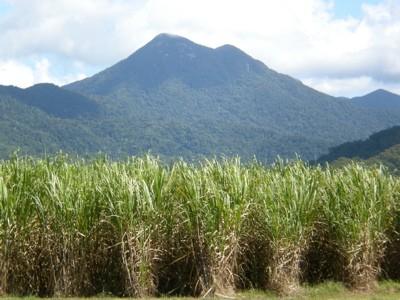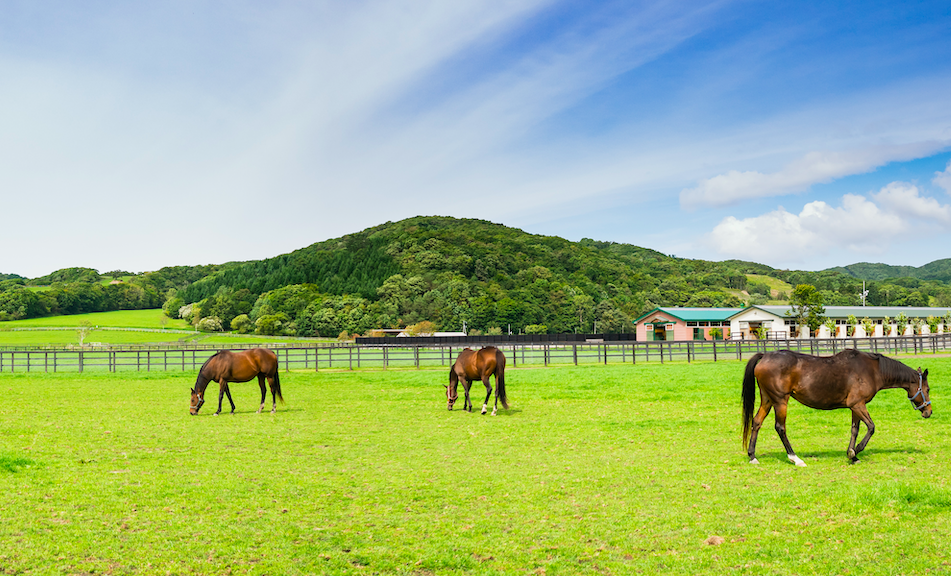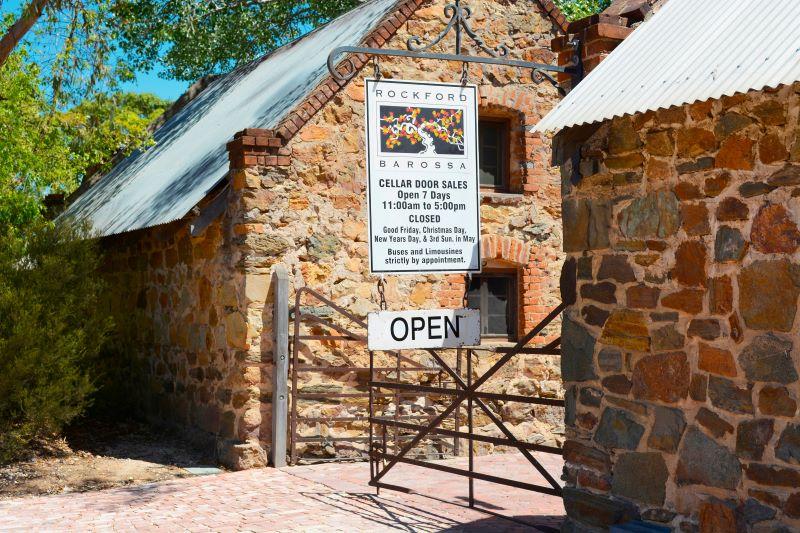Farmbuy FAQ
Frequently Asked Questions (FAQs) - Farms For Sale


Farmbuy.com Answers Most Frequently Asked Questions About Farms For Sale Australia
Australia's leading specialist rural property for sale wesbite Farmbuy.com provides detailed answers to the most Frequently Asked Questions (FAQ's) about farms for sale Australia.
We have answers to questions about how to buy your first farm, how much it costs to buy a farm, how to get finance to buy a farm, how to make money on a farm, and lots more!
How To Buy A Dairy Farm In Australia: Farmbuy.com Buyers' Guide
Australia's dairy industry stretches from North Tropical Coast and Tablelands of North Queensland to the west coast of WA and to Tasmania to the south.
The dairy industry makes an important contribution to the Australian economy. In 2015–16 it accounted for around 8 per cent ($4.3 billion) of the gross value of agricultural production and around 7 per cent ($3.0 billion) of agricultural export income.
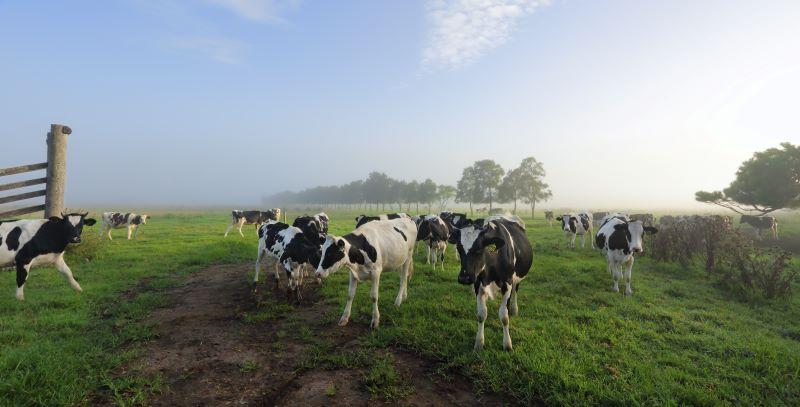
Australian dairy farm income can fluctuate significantly from year to year. This largely reflects changes in world prices for traded dairy products, the effects of varying seasonal conditions on milk production and the cost of farm inputs.
If you're looking for more information on the dairy industry, you may want to check out the Agriculture.gov dairy page to see if buying a dairy farm is the right choice for you.
If you’re looking to buy a dairy farm for sale, it’s important to do your research before you buy. Check out dairy farms currently for sale at farmbuy.com.
How To Buy A Farm: Farmbuy.com Buyers' Guide
Buying a farm can be rewarding, but if people do not have the skills and knowledge to look after their land and livestock properly, the dream can turn into a nightmare. Before you purchase a farm you should realistically and honestly assess your expectations and capabilities.
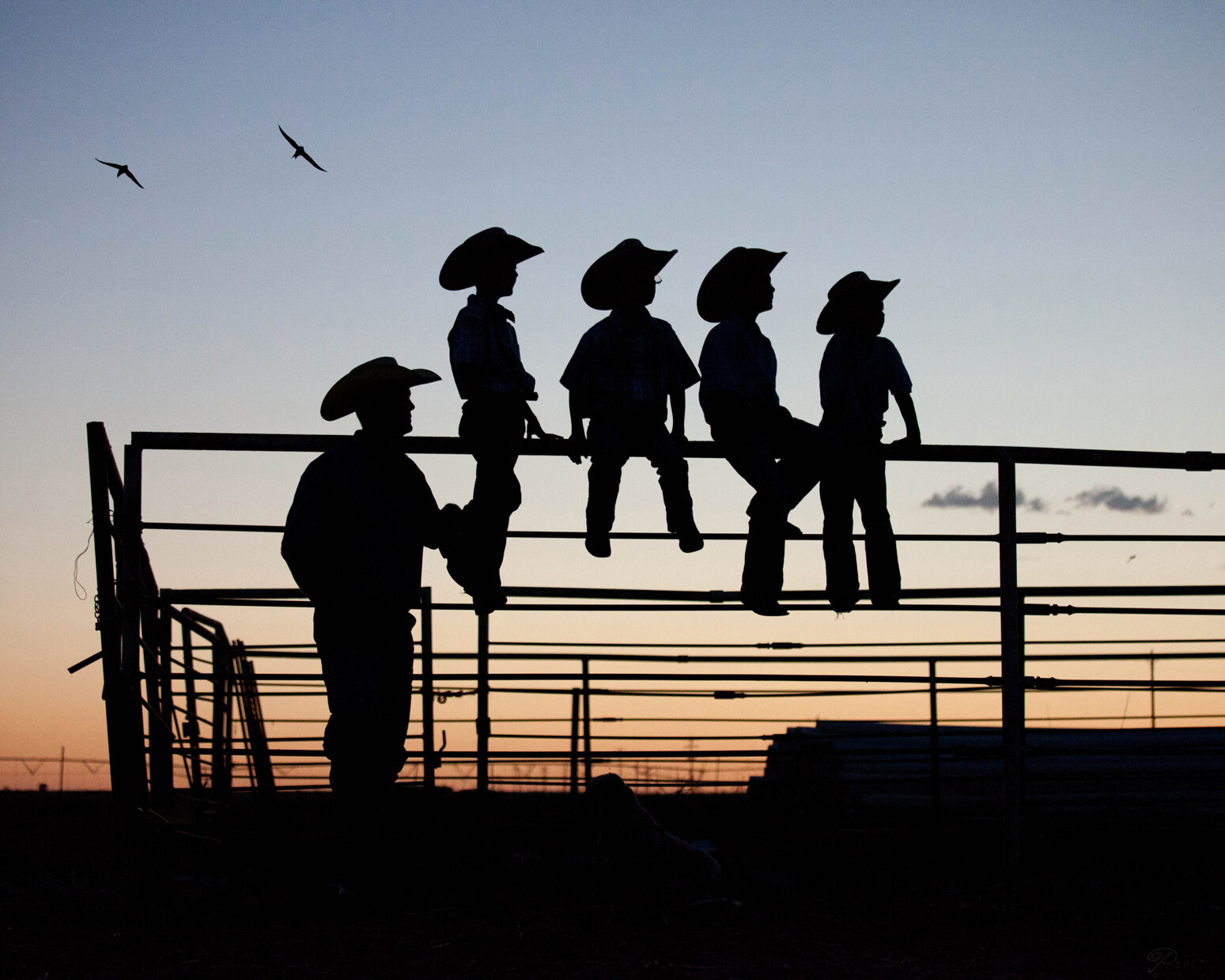
The Rural Living Handbook, produced by NSW government agency Local Land Services, provides a useful guide to purchasing a farm. It advises asking yourself the following questions before you buy.
- Are you buying the property more for lifestyle reasons? Or do you plan to improve the property and receive an income from it? If so, have you done a cost‑benefit analysis?
- Is the activity you plan for the property suited to the landscape and capability of the land? Is there enough water of suitable quality to sustain the activity that you have in mind? Is the soil fertile and the pH appropriate for growing pasture, crops and any other produce that you want to grow?
- Are there any existing conservation agreements or covenants, vegetation management plans or conditions of consent over part/s of the property?
- Are there good quality pastures? Are they dominated by native or introduced species? Is there enough shade and water for stock?
- Does the zoning of the land allow your proposed use, or will you need to apply for a change of land use or any other permit? If there is no existing dwelling and you want one, does the land have a dwelling entitlement?
- Do you know the history of the property? What stock did the previous owner have? Did they sow pastures and use fertilisers? Are there any contaminated sites on the property such as cattle dips or rubbish dumps needing remediation?
- Are there any structures on the property and if so, what condition are they in? Are the fences in good repair and suitable for confining stock if that is part of your plan?
- Are there pest animals (eg rabbits, foxes) on the property? Are there threatened species of flora and fauna on or near the property?
- Are there existing or proposed adjacent land uses that will affect your enjoyment of the property?
- Are all required services provided to the property (ie phone, gas, water, sewer, internet and electricity)? If not, can they be provided economically?
For more information on how to buy a farm click here.
To check out more than 3,000 farms and rural properties currently for sale visit farmbuy.com.
How To Buy A Hobby Farm: Farmbuy.com Buyers' Guide
Buying a hobby farm and making a “tree change” is becoming less of a dream and more of a reality for many Australians. But there are many things to consider during the planning stages of buying a hobby farm for sale.
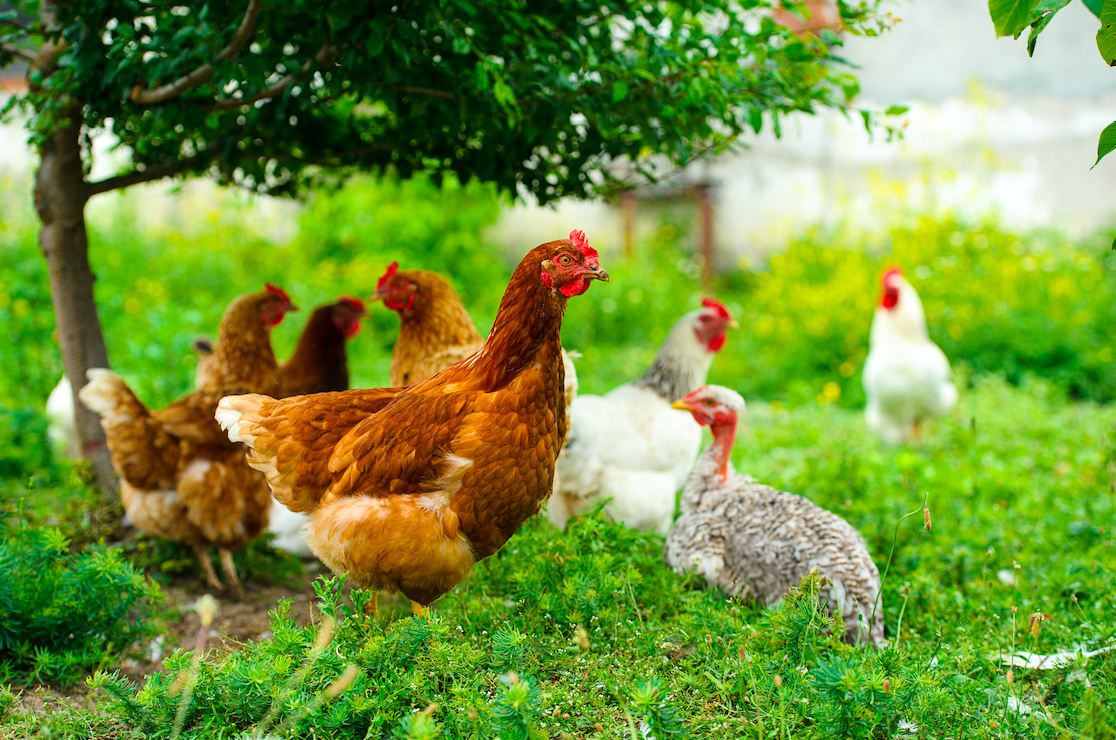
Keeping chickens to get free-range eggs, raising bees for honey, or growing your own fruit and vegetables can be satisfying
How To Buy A Hobby Farm: Research, More Research And Plan
Be clear on your objectives. Is your choice to buy a farm based on lifestyle or income generation?
If it’s lifestyle or hobby, then you’ll be looking at a smaller block of land - perhaps only a few acres. Consider what farming pursuits will be fulfilling for you. Keeping chickens to get free-range eggs, raising bees for honey, or growing your own fruit and vegetables can be satisfying. If it’s the income, you’ll need to consider purchasing a larger block of land - a farmlet, or even a small farm.
Your budget, the location and the climate will be important to consider when buying a hobby farm, especially if you’re considering having livestock or growing crops. If you have decided on livestock, you should also bear in mind that you may need to invest in infrastructure such as fencing, yards, barns and loading ramps.
If crops are your preferred option, soil, irrigation and machinery are must all be considered.
This checklist provides a useful guide to purchasing a farm.
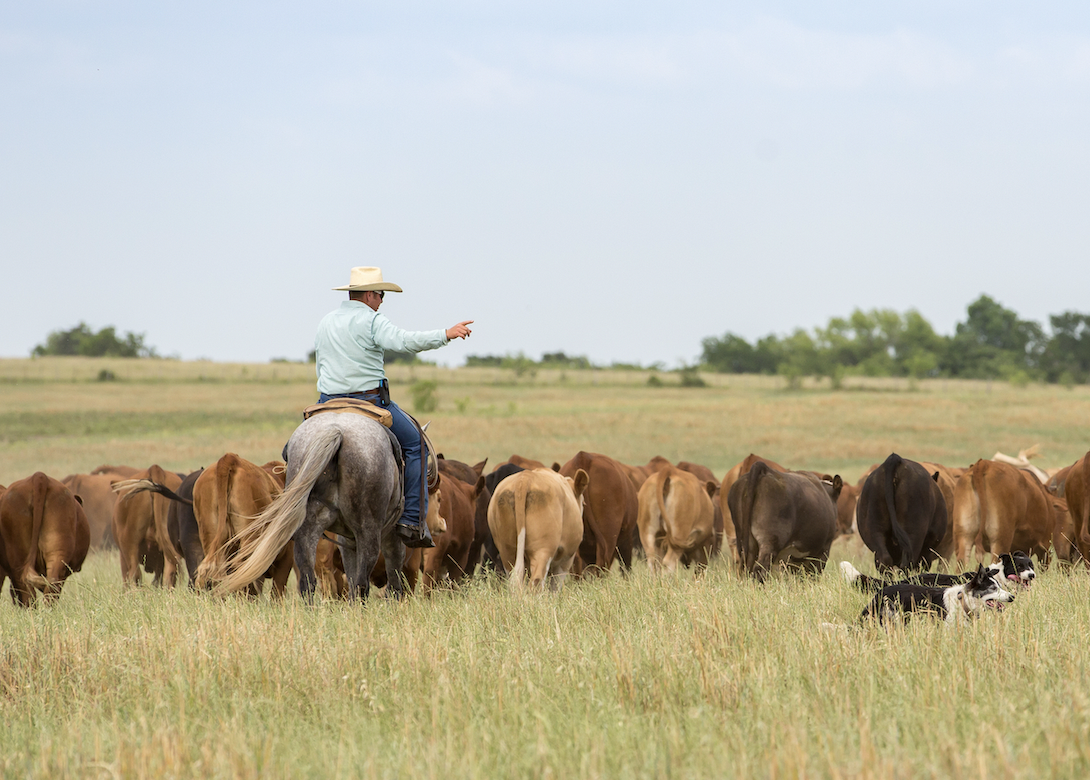
If you have decided on livestock, you may need to invest in infrastructure such as fencing, yards, barns and loading ramps
How To Buy A Hobby Farm: Talk To The Experts
Having a chat with someone who has bought a hobby farm beforehand can be invaluable and very reassuring. Ask around your local community for a contact who fits the brief. Your local real estate agent is also a great place to start. Finding the right real estate agent who specialises in hobby farms is important. With the right brief an experienced rural agent can help guide you through the process and ensure there are no surprises post sale.
How To Buy A Hobby Farm: Due Diligence
Knowing your property’s distance from the nearest town or city will be important if you’ll be undertaking part-time employment, and also for daily tasks like shopping or taking the kids to school. You also need to be aware of the quality of the local infrastructure like communications and roads.
Getting the right tax advice is a non-negotiable. You can visit the ATO website, but most of all you must get advice from a qualified tax advisor.
Making your property available for agistment may help you to earn revenue in the early stages
How To Buy A Hobby Farm: Financial Plan
Even if your primary goal for your farm is for it to be a rural lifestyle property, you should still consider options for revenue generation. Like any investment, you should aim to minimise debt or, if possible, not incur debt at all. Creative solutions like making your property available for agistment are clever options that may help you to earn revenue in the early stages.
How To Buy A Hobby Farm: Farmbuy.com
As Australia's leading specialist rural real estate website, farmbuy.com has almost 600 hobby farms and small farms currently for sale - check them out below!
Search hobby farms for sale and small farms for sale in NSW
Search hobby farms for sale and small farms for sale in VIC
Search hobby farms for sale and small farms for sale in NT
Search hobby farms for sale and small farms for sale in QLD
Search hobby farms for sale and small farms for sale in SA
Search hobby farms for sale and small farms for sale in TAS
Search hobby farms for sale and small farms for sale in WA
How To Buy A Working Farm: Farmbuy.com Buyers' Guide
Buying a working farm can be rewarding both personally and financially, but if you do not have the skills and knowledge to look after their land and livestock properly, the dream can turn into a nightmare. Before you purchase a working farm you should realistically and honestly assess your expectations and capabilities.
“The Rural Living Handbook”, produced by NSW government agency Local Land Services, provides a useful guide to purchasing a working farm. It advises asking yourself the following questions before you buy.
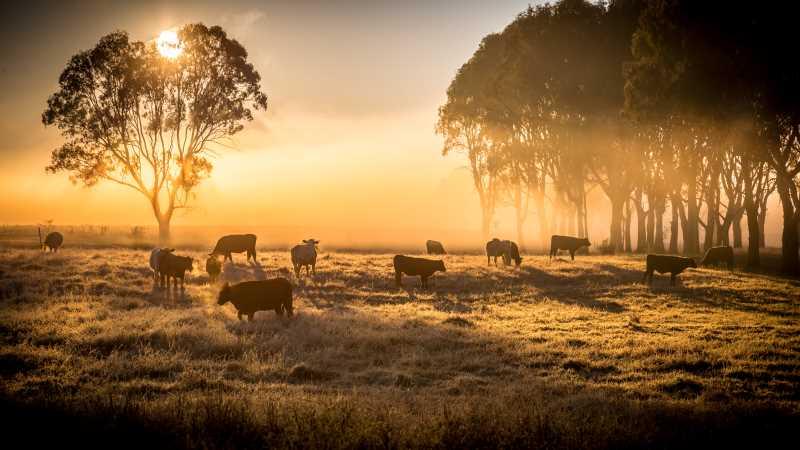
How many stock do you need to carry in order to be viable?
- If you plan to improve the property and receive an income from it, have you done a cost‑benefit analysis? For instance, how many stock do you need to carry in order to be viable and can the property support that?
- Is the activity you plan for the property suited to the landscape and capability of the land? Is there enough water of suitable quality to sustain the activity that you have in mind? Is the soil fertile and the pH appropriate for growing pasture, crops and any other produce that you want to grow?
- Are there any existing conservation agreements or covenants, vegetation management plans or conditions of consent over part/s of the property?
- Are there good quality pastures? Are they dominated by native or introduced species? Is there enough shade and water for stock?
- Do you know the history of the property? What stock did the previous owner have? Did they sow pastures and use fertilisers?
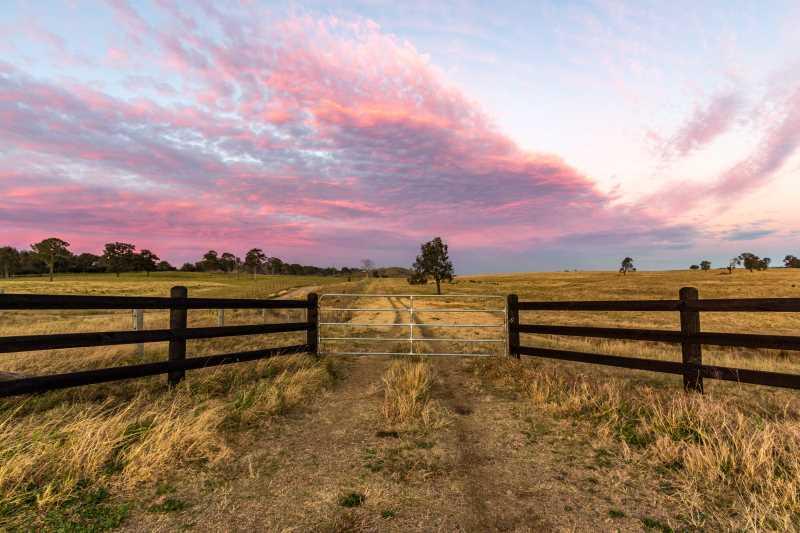
Are the fences in good repair and suitable for confining stock if that is part of your plan?
- Are there any structures on the property and if so, what condition are they in? Are the fences in good repair and suitable for confining stock if that is part of your plan?
- Are there pest animals (eg rabbits, foxes) on the property? Are there threatened species of flora and fauna on or near the property?
- Are all required services provided to the property (ie phone, gas, water, sewer, internet and electricity)? If not, can they be provided economically?
- Does the zoning of the land allow your proposed use, or will you need to apply for a change of land use or any other permit? If there is no existing dwelling and you want one, does the land have a dwelling entitlement?

Are there any structures on the property and, if so, what condition are they in?
- Are there any restrictions on obtaining approval to build a house or other buildings on your block, or to develop certain desired land uses?
- Have you requested a sheep and/or cattle health declaration from the vendor? This can tell you important information about livestock diseases that might affect the ongoing use of land.
- Is the land prone to flood or bushfire? Will you need to undertake any management activities to minimise these impacts? It may be more expensive to build and get insurance on flood or fire-prone land.
After considering all these questions, will the property provide the lifestyle and income that you are looking for?
For a more detailed checklist before you buy a working farm click here.
To view more than 3,000 farms and rural properties currently for sale on farmbuy.com click on the following links.
How To Buy Your First Farm: Farmbuy.com Buyers' Guide
Buying your first farm can be rewarding both personally and financially, but if you do not have the skills and knowledge to look after their land and/or livestock properly, the dream can turn into a nightmare. Before you buy your first farm you should realistically and honestly assess your expectations and capabilities.
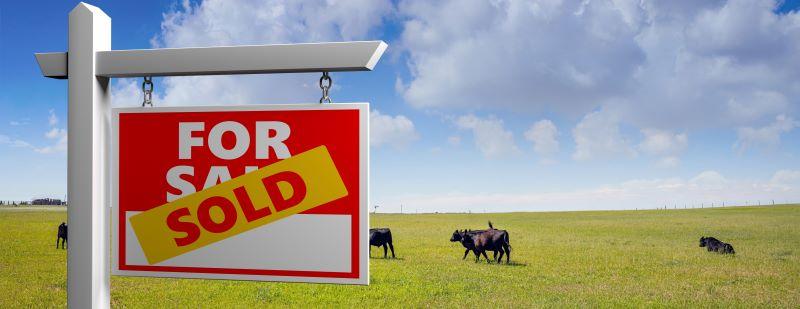
“The Rural Living Handbook”, produced by NSW government agency Local Land Services, provides a useful guide to purchasing a farm. It advises asking yourself the following questions before you buy your first farm.
- Are you buying the property more for lifestyle reasons? Or do you plan to improve the property and receive an income from it? If so, have you done a cost‑benefit analysis? For instance, how many stock do you need to carry in order to be viable and can the property support that?
- Will you be living on the property? If not, how often do you plan to be there? Have you thought about how quickly you could attend to situations that might arise?
- Is the activity you plan for the property suited to the landscape and capability of the land? For example, is there enough water of suitable quality to sustain the activity that you have in mind? Is the soil fertile and the pH appropriate for growing pasture, crops and any other produce that you want to grow?
- Are there good quality pastures? Are they dominated by native or introduced species? Is there enough shade and water for stock?
- Do you know the history of the property? What stock did the previous owner have? Did they sow pastures and use fertilisers? Request a property search to ensure there are no outstanding rates, levies or restrictions due to chemical residues, plant or animal diseases on the property.
- Have you requested a sheep and/or cattle health declaration from the vendor? This can tell you important information about livestock diseases that might affect the ongoing use of land.
- Does the zoning of the land allow your proposed use, or will you need to apply for a change of land use or any other permit? If there is no existing dwelling and you want one, does the land have a dwelling entitlement?
- Are there any structures on the property and if so, what condition are they in? Are the fences in good repair and suitable for confining stock if that is part of your plan?
- Are there pest animals (eg rabbits, foxes) on the property? Are there threatened species of flora and fauna on or near the property?
- Are all required services provided to the property (ie phone, gas, water, sewer, internet and electricity)? If not, can they be provided economically?
- Are there any covenants, management plans or agreements on the property that protect certain areas? Are there any outstanding weeds notices on the property?
- Is the land prone to flood or bushfire? Will you need to undertake any management activities to minimise these impacts? It may be more expensive to build and get insurance on flood or fire-prone land.
- Are there existing or proposed adjacent land uses that will affect your enjoyment of the property? For example, are there legitimate rural uses nearby such as agriculture, quarries, mines and forestry that produce dust, odours or noise?
After considering all these questions, will the property provide the lifestyle and income that you are looking for?
For a more detailed checklist before you buy a working farm click here.
To view more than 3,000 farms and rural properties currently for sale on farmbuy.com click on the following links.
How To Find Acreage For Sale: Farmbuy.com Buyers' Guide
Specialist rural property website farmbuy.com is the best place to find acreage for sale Australia.
Established in 2009, farmbuy.com has more than 3,000 rural properties for sale in all Australian states and territories including ACT, NSW, NT, QLD, SA, TAS, VIC and WA.
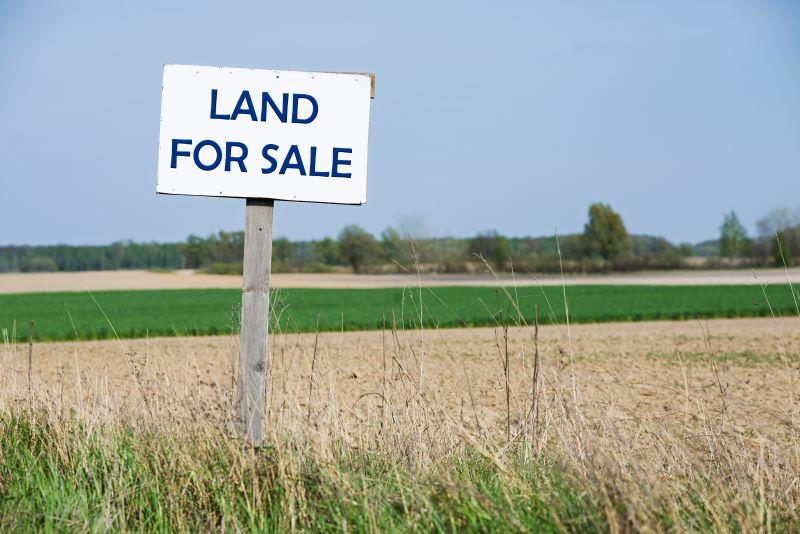
To make the search process easy, properties can be searched by location as well as property type – including acreage/semi-rural, cropping, dairy, farmlet, horticulture/viticulture, lifestyle, livestock and mixed farming.
Prospective buyers can also find acreage for sale by price, land size and suburb or region.
Uniquely, farmbuy.com also features an extensive and up-to-date library of highly-valuable Buyers’ Guides focused on key regions and property types – including the latest acreage price trends and top acreage currently for sale. There’s also expert advice on what to look for when buying acreage - including a comprehensive check list.
To find the latest acreage for sale click on the following links:
How To Find Farms For Sale: Farmbuy.com Buyers' Guide
Specialist farming property website farmbuy.com is the best place to find farms for sale in Australia.
Established in 2009, farmbuy.com has more than 3,000 farms for sale in all Australian states and territories including ACT, NSW, NT, QLD, SA, TAS, VIC and WA.
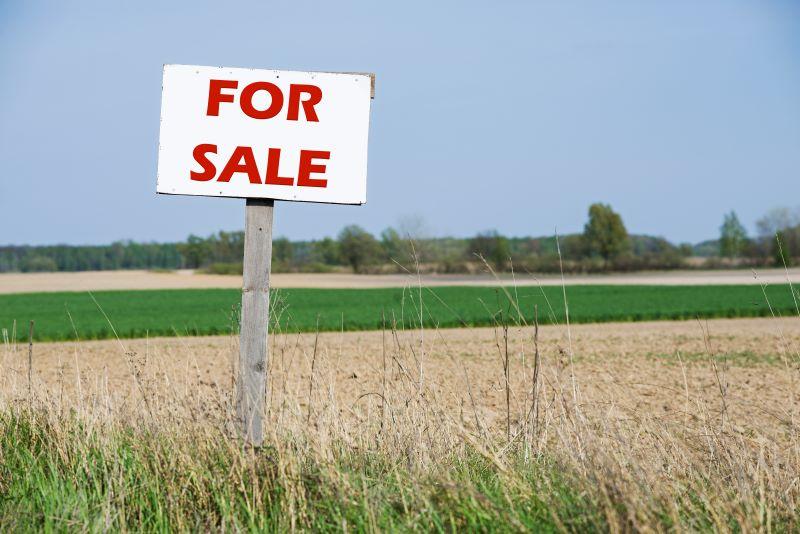
To make the search process easy, farms can be searched by location as well as farm type – including acreage/semi-rural, cropping, dairy, farmlet, horticulture/viticulture, lifestyle, livestock and mixed farming.
Prospective buyers can also find farms for sale by price, property size and suburb or region.
Uniquely, farmbuy.com also features an extensive and up-to-date library of highly-valuable Buyers’ Guides focused on key regions and farm types – including the latest price trends and top farms currently for sale. There’s also expert advice on what to look for when buying a farm - including a comprehensive check list.
To find the latest farms for sale click on the following links:
How To Find Rural Properties For Sale: Farmbuy.com Buyers' Guide
Specialist rural real estate website farmbuy.com is the best place to find rural properties for sale in Australia.
Established in 2009, farmbuy.com has more than 3,000 rural properties for sale in all Australian states and territories including ACT, NSW, NT, QLD, SA, TAS, VIC and WA.
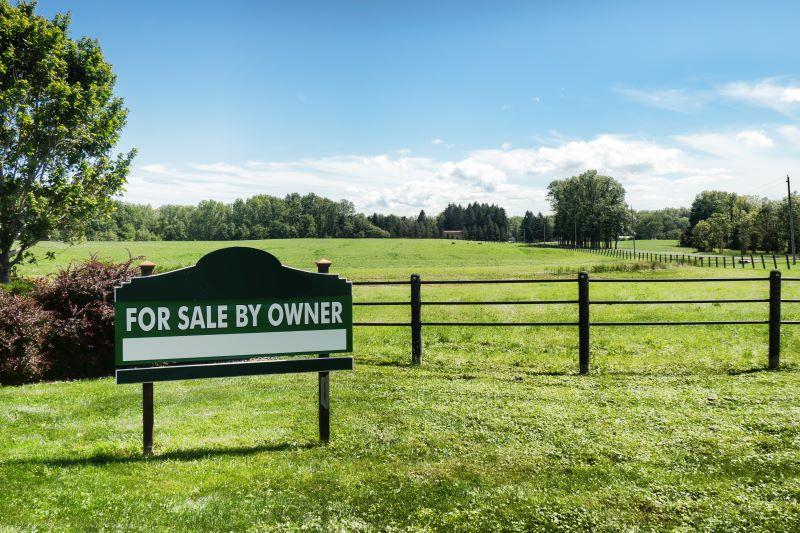
To make the search process easy, properties can be searched by location as well as property type – including acreage/semi-rural, cropping, dairy, farmlet, horticulture/viticulture, lifestyle, livestock and mixed farming.
Prospective buyers can also find rural properties for sale by price, property size and suburb or region.
Uniquely, farmbuy.com also features an extensive and up-to-date library of highly-valuable Buyers’ Guides focused on key regions and property types – including the latest price trends and top properties currently for sale. There’s also expert advice on what to look for when buying a rural property - including a comprehensive check list.
To find the latest rural properties for sale click on the following links:
How To Get A Loan To Buy A Farm: Farmbuy.com Buyers' Guide
There are a range of options to get finance to buy a farm, from traditional loans from banks and other financial institutions, to various concessional loan schemes offered by federal and state governments, to vendor finance.
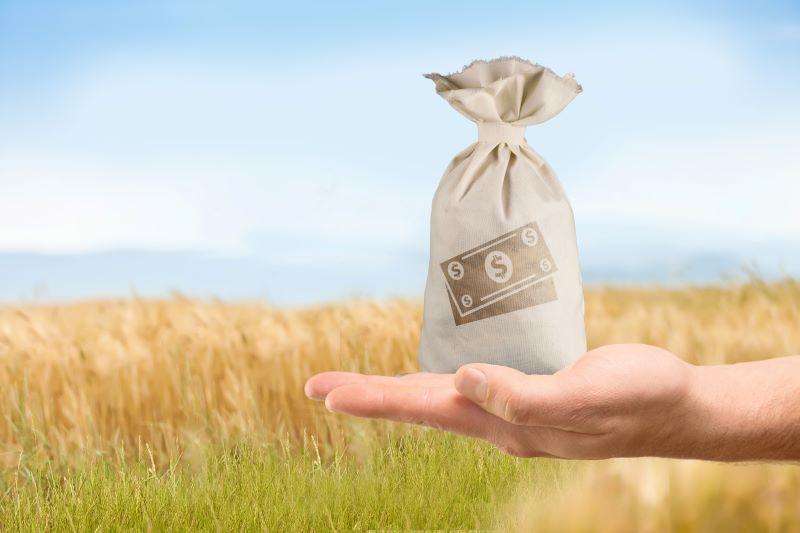
Bank Loans
Specialist agribusiness lenders such as Suncorp Bank offer agribusiness loans for a broad range of purposes such as property purchases, off-farm investments, capital improvements or the consolidation of existing finance.
You can choose from a range of options including fixed or variable interest rates, and a choice of loan-repayment and interest-charging frequencies. Options include: fixed and variable interest rates; principal-and-interest and interest-only repayments; terms from one up to 15 years; and a choice of security including residential, commercial or rural property. Business assets may also be acceptable.
Suncorp’s Agribusiness Specialists can help you structure a loan to suit your business needs, your cash flow, and will take into consideration any seasonal fluctuations.
You can find more about agribusiness loans here.
Concessional Loans
Operated by the Federal Government’s Regional Investment Corporation (RIC), Agristarter Loans is a program for first-time farmers or farmers looking to plan for and implement succession arrangements. The program offers loans of up to $2 million.
There are two types of loans: first farmer (for individuals seeking to purchase, establish, or develop a business in which they hold sole/controlling interest) and succession (for businesses anticipating or undertaking succession arrangements).
The versatility of this loan is one of its most attractive features, as individuals and businesses can apply, regardless of whether they are starting an agricultural venture or expanding one. Loans can be used to buy or establish a farm business or pay for the legal costs of succession.
You can find more about the eligibility for this ongoing program and apply for it here.
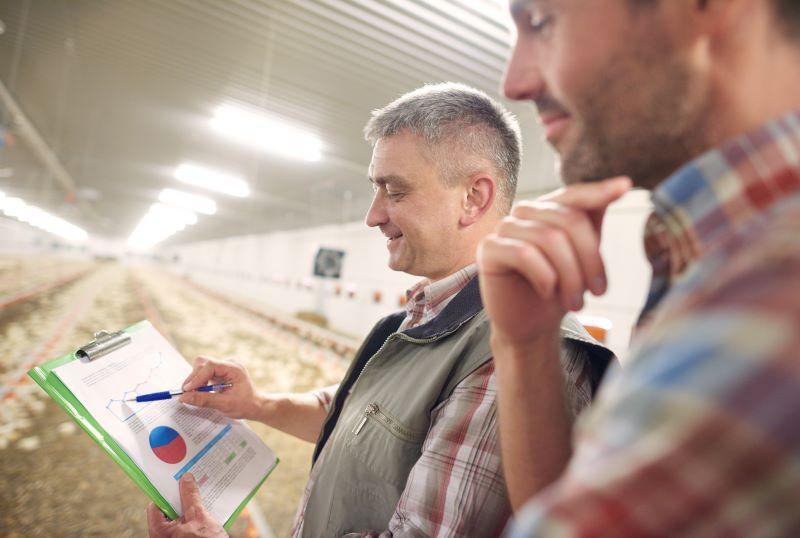
In Queensland, the $120 million First Start Loan Program can provide concessional finance of up to $2 million to assist in the initial years of establishing a Queensland-based primary production business.
The secured, fixed-rate loans – available for terms of up to 20 years – can be used to buy your first farm, including from family members; become a partner in the family farm; enter into leasing or share-farming arrangements; develop existing or purchase additional property to become viable; and put succession plans in place. Generally, equity of 50 per cent is required.
You can find more about the eligibility for this ongoing program and apply for it here.
Vendor Finance
Vendor finance is an arrangement in which the farm buyer pays a deposit to the seller to acquire the property, and the seller lends the rest of the money, which the purchaser agrees to pay back at an agreed rate. This enables the buyer to purchase the property when bank debt is unavailable in whole or in part; and provides the exiting farmer with a consistent ongoing return.
On the downside, the interest rate paid on vendor finance will generally be more expensive than bank debt; and the term will be relatively short as vendors will not want their asset tied up in lending agreements for a long period.
You can find out more about vendor finance here.
How To Get A Small Farm Grant: Farmbuy.com Guide
Federal, state and local governments have all sorts of grants and support programs that can help kick off or sustain your agricultural dreams.
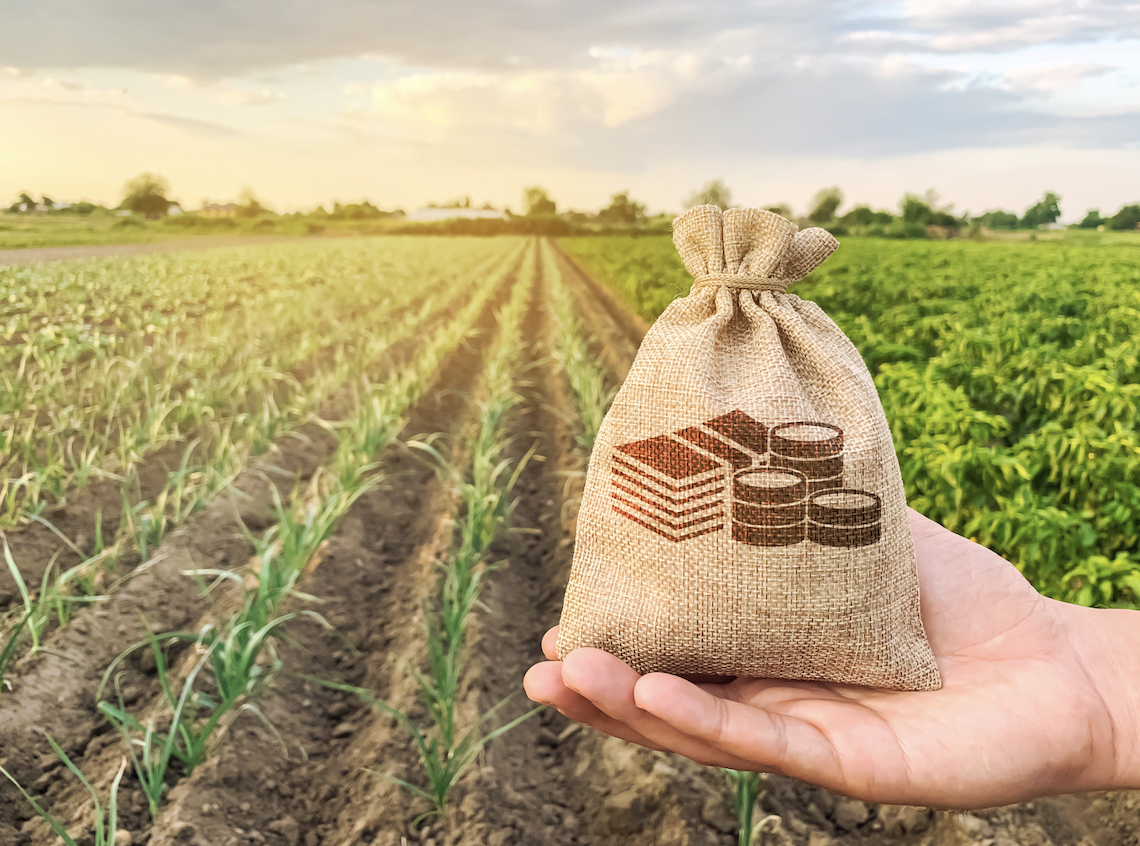
How To Get A Small Farm Grant: Agristarter Loans
Operated by the Regional Investment Corporation (RIC), Agristarter Loans come in two types: first farmer (for individuals seeking to purchase, establish, or develop a business in which they hold sole/controlling interest); and succession (for businesses anticipating or undertaking succession arrangements). The program offers loans of up to $2 million.
You can find more about the eligibility for the program and apply for it here.
How To Get A Small Farm Grant: New Business Assistance With NEIS
The New Business Assistance with NEIS program provides support to people interested in starting their own business or who need help to refocus an existing micro-business. It provides training for people interested in self-employment, benefiting both newcomers to agribusiness and existing entrepreneurs.
You can find more about the eligibility for the program and apply for it here.
How To Get A Small Farm Grant: Young Farmer Duty Exemption or Concession
The goal of the Young Farmer Duty Exemption or Concession is to provide young farmers in Victoria with a duty exemption or concession when buying their first farm. Transfers of land will be eligible for a full exemption from duty if the farmland is valued at $600,000; or less or a concession from duty if the farmland is valued at $600,001 to $750,000. It is necessary for applicants to be under 35 at the time of transfer.
You can find out more about the eligibility of the program and apply for it here.
How To Get A Small Farm Grant: Emissions Reduction Fund
The Emissions Reduction Fund (ERF) is an ongoing scheme that provides opportunities for farmers and land managers to take part in emission reduction and carbon sequestration (capture and storage of carbon) projects as a source of additional income.
You can find more about the eligibility for the program and apply for it here.
How To Get A Small Farm Grant: Wine Tourism And Cellar Door Grant
The Wine Tourism and Cellar Door Grant program intends to financially support vinicultural producers who add value to the industry by encouraging tourists to visit their wine regions. The program has $10 million in annual funding available and provides grants of up to $100,000 to eligible producers.
You can find more about the eligibility for the program and apply for it here.
How To Get A Small Farm Grant: Smart Farms
The Smart Farms program funds organisations and individuals to undertake sustainable agricultural projects that will adopt best practice natural resource management methods. Grants range from $5,000 to $200,000.
You can find more about the eligibility for the program and apply for it here.

